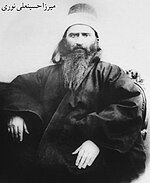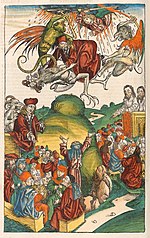I ask the question on the title because there a quite a number of statements the Apostle Paul made about the coming of Jesus and resurrection of the holy ones that never fulfilled.
For example :
1 Corinthians 15: 51, 52 (NWT) :
"Look! I tell you a sacred secret: We will not all fall asleep in death, but we will all be changed, 52 in a moment, in the blink of an eye, during the last trumpet. For the trumpet will sound, and the dead will be raised up incorruptible, and we will be changed"
1 Thessalonians 4 : 15 -18 (NWT) :
"For this is what we tell you by Jehovah’s word, that we the living who survive to the presence of the Lord will in no way precede those who have fallen asleep in death; 16 because the Lord himself will descend from heaven with a commanding call, with an archangel’s voice and with God’s trumpet, and those who are dead in union with Christ will rise first. 17 Afterward we the living who are surviving will, together with them, be caught away in clouds to meet the Lord in the air; and thus we will always be with the Lord. 18 So keep comforting one another with these words"
From the first scripture, Paul even boldly calls it a sacred secret. He expressed the conviction that they would not all die. The context shows that he was talking primarily to his brothers in Corinth.
Evidently this "sacred secret" failed. They all died. And more than 2000 years ahead, here we are. If we were to take Paul's words out of context and even try to apply it to our day, it would mean Paul and the thousands of christians are still in the grave waiting for Christ to arrive (Christ coping. I'm not using the bogus 1914 presence explanation here, because that's even more farcical).
Now to the second text to the Thessalonians, this is even more absurd. Verse 18, shows that he was comforting them with the hope. What Was The hope? An examination of the text shows that he said with certainty that "we" the living. Clearly he was quite sure that the resurrection would occur in his life time.
The failure of these spurious claims lead me to some real honest questions.
- Are these text under inspiration too? If they are, why did they fail. If they are not, but mere wishful thinking, on what grounds then can we take other of Paul's writings as inspired?
- Since these claims did not fulfill for those to whom it was intended as is evident when we read the context, on what ground then can Christians express confidence, faith and even adopt it as a doctrine for Christians today as something that is being fulfilled already (as in the dubious explanation of the Jws) or even as something still to come as believed by many other Christians?
- Since his teachings on this matter failed, can we call Paul a False Prophet as we do the Jw Borg?
Has anyone thought of this before too? How were you able to get around this without making concession for Paul and not making one for the borg?
Waiting for your replies.

